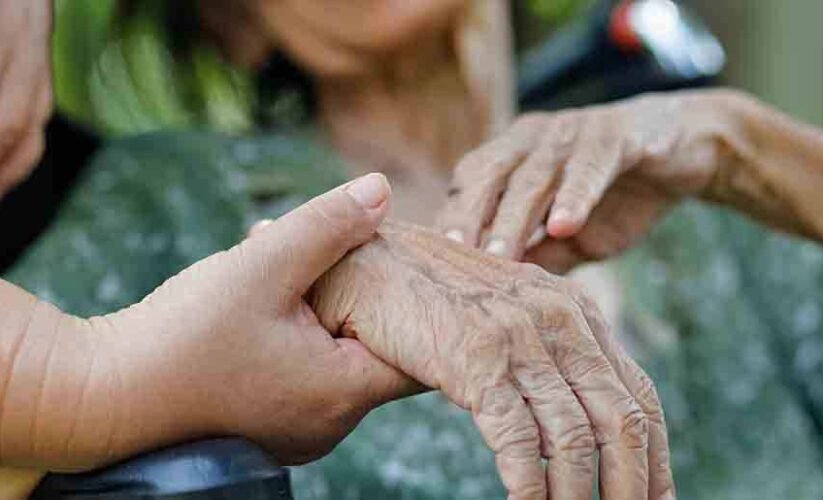Home Safety Tips for Seniors

As we age, maintaining a safe living environment becomes increasingly crucial. Home safety for seniors encompasses various aspects, from preventing falls to fire safety and managing medications. In this comprehensive guide, we’ll explore practical tips and strategies to promote safety and independence among seniors at home.
1. Identifying Potential Hazards
Living independently doesn’t mean compromising safety. Assessing the home environment for potential hazards is the first step in ensuring seniors’ safety. From loose rugs to poor lighting, identifying and addressing hazards promptly can significantly reduce the risk of accidents.
Ensuring adequate lighting in all areas, especially stairways and hallways, is essential to prevent falls. Installing handrails and grab bars in bathrooms and near stairs provides added support.
2. Fall Prevention Measures
Falls are a leading cause of injury among seniors. Implementing fall prevention measures can significantly reduce the risk. Encourage seniors to wear supportive footwear with non-slip soles and to use assistive devices such as canes or walkers if needed.
Remove tripping hazards such as loose rugs, clutter, and electrical cords from walkways. Consider installing grab bars and handrails in high-risk areas like bathrooms and staircases.
3. Fire Safety Precautions
Fire safety is paramount for seniors living independently. Ensure smoke detectors are installed on every floor of the home and test them regularly. Develop and practice a fire escape plan, identifying exits and ensuring clear pathways.
Keep a fire extinguisher accessible in the kitchen and familiarize seniors with its proper use. Avoid smoking indoors and exercise caution when cooking to prevent kitchen fires.
4. Medication Management
Proper medication management is crucial for seniors’ health and safety. Organize medications in labeled containers and establish a routine for taking them. Consider using pill organizers or automatic dispensers to ensure medications are taken as prescribed.
Regularly review medications with healthcare providers to prevent adverse reactions or interactions. Dispose of expired or unused medications properly to avoid accidental ingestion.
5. Kitchen Safety Tips
The kitchen can pose various hazards for seniors. Ensure all appliances are in good working condition and that seniors are comfortable using them safely. Store sharp objects and cleaning supplies out of reach or in locked cabinets.
Encourage seniors to use oven mitts and pot holders to prevent burns when cooking. Install anti-scald devices on faucets to regulate water temperature and prevent scalding.
6. Bathroom Safety Measures
The bathroom is another area prone to accidents for seniors. Install grab bars near the toilet and in the shower or bathtub to provide support. Consider using non-slip mats or adhesive strips in the bathtub to prevent slips and falls.
Ensure adequate lighting and easy access to essential items like towels and toiletries. Consider installing a raised toilet seat or shower chair for added comfort and safety.
7. Emergency Preparedness
Preparing for emergencies is crucial for seniors living independently. Create an emergency kit with essential supplies, including medications, water, non-perishable food, and a flashlight. Keep important documents, such as medical records and contact information, readily accessible.
Develop a communication plan with family members or neighbors in case of emergencies. Ensure seniors are familiar with emergency procedures and know how to contact emergency services.
8. Financial Security
Protecting seniors’ financial security is essential for their overall well-being. Educate seniors about common scams targeting older adults and how to recognize and avoid them. Consider setting up automatic bill payments and monitoring bank accounts for suspicious activity.
Encourage seniors to designate a trusted individual to assist with financial matters if needed. Review insurance policies, including homeowners and health insurance, to ensure adequate coverage.
9. Social Engagement
Social isolation can have detrimental effects on seniors’ mental and emotional well-being. Encourage social engagement through activities like joining clubs or community groups, volunteering, or attending classes or events.
Stay connected with friends and family members through regular visits, phone calls, or video chats. Consider enrolling in programs or services designed to support seniors’ social connections and combat loneliness.
10. Regular Home Maintenance
Regular home maintenance is essential for ensuring a safe and comfortable living environment for seniors. Schedule routine inspections of heating and cooling systems, electrical wiring, and plumbing to identify and address any issues promptly.
Keep pathways clear of debris and ensure outdoor areas are well-lit to prevent trips and falls. Address any structural concerns or repairs promptly to maintain the integrity of the home.
11. Mobility Assistance
For seniors with mobility issues, accessing and navigating the home can present challenges. Consider making modifications such as installing ramps or stairlifts to improve accessibility. Ensure pathways are wide enough to accommodate mobility aids like wheelchairs or walkers.
Provide support and assistance as needed, but also encourage independence and self-reliance whenever possible. Explore community resources or home care services that offer mobility assistance and support.
12. Emotional Support
Emotional support plays a vital role in seniors’ overall well-being. Be attentive to their emotional needs and offer a listening ear and encouragement. Encourage seniors to express their feelings and concerns openly.
Provide reassurance and validation, acknowledging their experiences and perspectives. Offer companionship and companionship, engaging in activities that bring joy and fulfillment.
13. Seeking Professional Assistance
Sometimes, professional assistance may be necessary to ensure seniors’ safety and well-being at home. Consider consulting with healthcare professionals, home care agencies, or geriatric specialists for personalized recommendations and support.
Explore options such as in-home care, assisted living, or senior communities if additional assistance is needed. Collaborate with healthcare providers and caregivers to develop a comprehensive care plan tailored to seniors’ individual needs.
Looking for help with elderly care? Paxpin Care ensures the well-being and independence of your aging parents at home. Our compassionate caregivers empower seniors to thrive. Contact us today for dependable and compassionate elderly care services.


